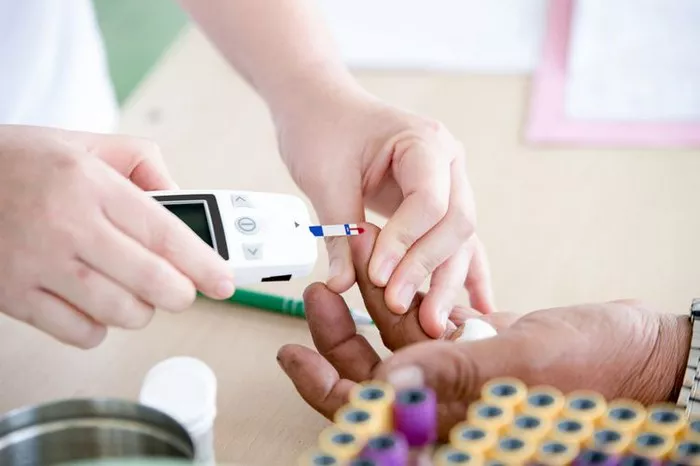Diabetes is a chronic condition characterized by high blood sugar levels due to the body’s inability to produce or effectively use insulin. This article delves into the critical aspects of blood sugar management and provides clear guidelines on when blood sugar levels necessitate a visit to the hospital. Understanding these thresholds can be life-saving for individuals with diabetes and their caregivers.
What is Blood Sugar?
Blood sugar, or glucose, is the primary source of energy for the body’s cells. It comes from the foods we eat and is regulated by insulin, a hormone produced by the pancreas. In people with diabetes, this regulation is impaired, leading to fluctuations in blood sugar levels.
Normal Blood Sugar Levels
- Fasting Blood Sugar (FBS): 70-99 mg/dL (3.9-5.5 mmol/L)
- Postprandial (after eating) Blood Sugar: Less than 140 mg/dL (7.8 mmol/L)
- Hemoglobin A1c (HbA1c): Less than 5.7%
Blood Sugar Levels: When to Seek Hospital Care
Hyperglycemia (High Blood Sugar)
Hyperglycemia occurs when blood sugar levels rise above the normal range. It can be caused by factors such as overeating, missing insulin doses, stress, or illness.
Symptoms of Hyperglycemia
- Frequent urination
- Increased thirst
- Blurred vision
- Fatigue
- Headache
Severe Hyperglycemia: Diabetic Ketoacidosis (DKA) and Hyperosmolar Hyperglycemic State (HHS)
- DKA: Occurs primarily in Type 1 diabetes when the body starts breaking down fat at an accelerated rate, producing ketones, which make the blood acidic.
- HHS: Occurs in Type 2 diabetes, characterized by extremely high blood sugar levels without the presence of ketones.
Critical Hyperglycemia: When to Go to the Hospital
DKA and HHS are medical emergencies. Seek immediate hospital care if you experience:
Blood Sugar Level Over 300 mg/dL (16.7 mmol/L)
Persistent levels above this threshold can lead to complications and require medical intervention.
Presence of Ketones in Urine
Ketone testing kits are available over the counter. A positive ketone test alongside high blood sugar is a red flag.
Severe Symptoms
Nausea, vomiting, abdominal pain, confusion, difficulty breathing, and a fruity smell on the breath are symptoms that necessitate emergency care.
Hypoglycemia (Low Blood Sugar)
Hypoglycemia occurs when blood sugar levels drop below 70 mg/dL (3.9 mmol/L). It is a potentially dangerous condition that can lead to loss of consciousness or seizures if not promptly treated.
Symptoms of Hypoglycemia
- Shaking
- Sweating
- Rapid heartbeat
- Hunger
- Irritability
- Confusion
- Dizziness
Critical Hypoglycemia: When to Go to the Hospital
Blood Sugar Level Below 54 mg/dL (3.0 mmol/L)
Severe hypoglycemia requires immediate medical attention, especially if it does not improve with initial treatment (e.g., consuming fast-acting carbohydrates).
Severe Symptoms or Loss of Consciousness
If an individual experiences severe symptoms such as loss of consciousness, seizures, or is unable to swallow, call emergency services immediately.
Recurrent Hypoglycemia Episodes
Frequent episodes can indicate an underlying issue with diabetes management and may require a hospital visit for further evaluation and adjustment of treatment plans.
Long-Term Complications and Hospitalization
Chronic high blood sugar can lead to various complications, which might necessitate hospital visits for assessment and management:
Cardiovascular Disease
High blood sugar can damage blood vessels and increase the risk of heart attacks and strokes.
Neuropathy
Nerve damage can cause pain, tingling, and loss of sensation, particularly in the extremities.
Nephropathy
Kidney damage from prolonged high blood sugar can lead to kidney failure, requiring dialysis or a transplant.
Retinopathy
High blood sugar can damage the blood vessels in the retina, leading to vision problems and even blindness.
Preventive Measures and Management
Regular Monitoring
Frequent monitoring of blood sugar levels is crucial for managing diabetes and preventing complications. Patients should adhere to their prescribed testing schedule and report any significant fluctuations to their healthcare provider.
Medication Adherence
Taking medications as prescribed, including insulin and oral hypoglycemic agents, is essential for maintaining blood sugar within target ranges.
Lifestyle Modifications
Diet
A balanced diet rich in fiber, lean proteins, and healthy fats can help regulate blood sugar levels. Avoiding excessive carbohydrates and sugary foods is crucial.
Exercise
Regular physical activity helps improve insulin sensitivity and control blood sugar levels. Patients should aim for at least 150 minutes of moderate aerobic activity per week.
Stress Management
Stress can affect blood sugar levels. Techniques such as yoga, meditation, and deep breathing exercises can be beneficial.
Education and Support
Diabetes education programs can provide valuable information on managing the condition, recognizing symptoms, and making lifestyle changes. Support groups can also offer emotional support and practical advice from peers.
See also:At What Glucose Level Are You Considered Diabetic
Conclusion
Managing blood sugar levels is a critical aspect of diabetes care. Understanding when to seek hospital care can prevent life-threatening complications. Immediate medical attention is necessary for severe hyperglycemia and hypoglycemia, especially when accompanied by symptoms such as confusion, loss of consciousness, or persistent high or low blood sugar readings. Regular monitoring, medication adherence, lifestyle modifications, and education are key strategies in preventing emergencies and maintaining overall health for individuals with diabetes.
By being vigilant and proactive, patients with diabetes can lead healthy, fulfilling lives while minimizing the risk of complications that require hospital intervention.
Related topics:



























